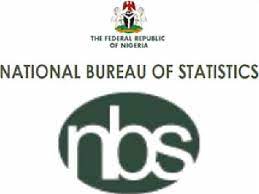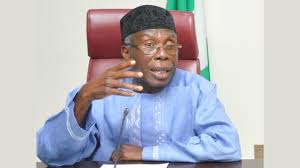….As Food Prices Sustain Surging Trend
The National Bureau of Statistics (NBS) on Monday reported that in September 2023, the headline inflation rate rose to 26.72% compared to the August 2023 headline inflation rate which stood 25.80%.
The Bureau, in its ‘CPI and Inflation Report September 2023’ report published on its website, indicated that the September 2023 headline inflation rate represented 0.92% points increase above the August 2023 headline inflation rate.
The statistics agency clarified that on a year-on-year basis, the headline inflation rate was 5.94% points higher compared to the rate recorded in September 2022, which was 20.77%.
The latest report from the statistics agency showed that the headline inflation rate (year-on-year basis) increased in September 2023 when compared to the same month in the preceding year.
According to the Bureau, on a month-on-month basis, the headline inflation rate in the month under review was 2.10%, which was 1.08% lower than the 3.18% rate recorded in August
This implies that in September, the rate of increase in the average price level was less than the rate of increase in the average price level in August 2023.
In the month under review, analysis of the year-on-year inflation contributions showed that Food and non-alcoholic beverages accounted for the most significant share at 13.84%, followed by housing water, electricity, gas, and other fuels at 4.47%, and clothing and footwear at 2.04%.
Specifically, food inflation sharply surged to 30.64% in September 2023, representing a 1.30 %-point increase from the previous month and 7.30% points higher than the corresponding period in 2022.
On a month-on-month basis, the Food inflation rate in the month of September reached 2.45%, which was 1.41% points lower compared to the rate in August 2023 (3.87%).
The Bureau attributed the month-on-month decline in food inflation to a reduced rate of growth in the average costs of Potatoes, Yam, and other tubers, Bread and cereals, Fruits, as well as Fish.
The annual rate of Food inflation for the twelve months ending September 2023 averaged 25.65%, a 6.29 %-point increase from September 2022 (9.36%).
Also the NBS’ CPI report for the month reflected that urban inflation hit 28.68%, marking a 7.43%-point increase from the 21.25% recorded in September last year, while rural inflation stood at 24.94%, indicating a 4.62%-point increase from the 20.32% in 2022.
The statistics agency further reported that in the month under review the “All items less farm produce,” index, which excludes volatile agricultural produce prices and energy, recorded a year-on-year rate of 21.84%, up by 4.35% compared to September 2022’s 17.49%.
It disclosed that on a month-on-month basis, the Core Inflation rate for September 2023 was 2.22%, a slight increase from 2.18% in the preceding month while the average twelve-month annual inflation rate for the twelve months ending September 2023 was 19.55%, a 4.48% point increase from September 2022.
The Bureau noted that the most significant price hikes were observed in the costs of Passenger Transport by Road, Passenger Transport by Air, Medical Services, Furniture Repair, Maintenance, and the repair of personal transport equipment, among others.
A further analysis of the CPI report for September 2023 from the Bureau, reflected that the highest year-on-year all items inflation rates were observed in Kogi (32.95%), Rivers (30.63%), and Lagos (30.04%), whereas Borno (21.05%), Jigawa (22.39%), and Benue (23.22%) reported the most gradual increases in headline inflation on a year-on-year basis.
On food inflation, in September 2023, the highest year-on-year Food inflation rates were recorded in Kogi (39.37%), Rivers (35.95%), and Lagos (35.66%), whereas Jigawa (23.41%), Borno (25.29%), and Sokoto (25.38%) reported the most modest increases in Food inflation on a year-on-year basis.
Analysts have mainly linked the nation’s surging inflation rate in recent months to the removal of petrol subsidies and the devaluation of the official exchange rate by the President Bola Tinubu’s administration, both of which have been exerting impacts on consumer prices.




